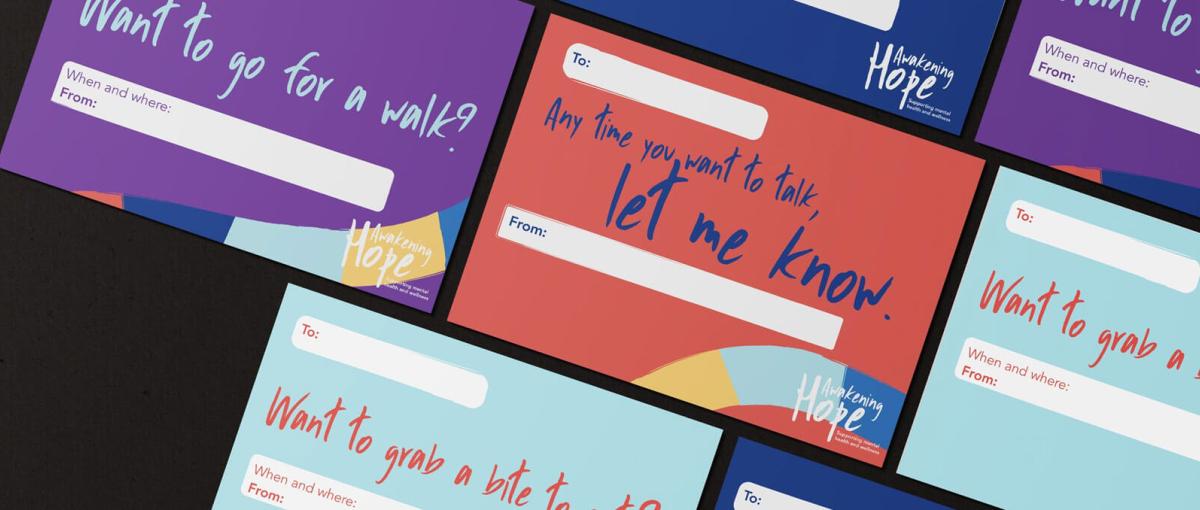Small gestures, big impact
Showing others you care can make a significant difference

January 13, 2020
By Brenton Driedger, Social Media and Storytelling Advisor, Covenant Health
We all struggle occasionally, and we know the same is true for others. But it can be hard to know how to reach out and help someone when they’re going through a tough time.
It sometimes feels like we need to do something significant or perhaps we need to be trained to help someone in need. But Scott Aylwin, senior director of addiction and mental health, says small gestures can have a big impact.
“Most of us don’t need a major intervention. What we need is a bit of hope and a bit of reassurance that we’re not in this alone.”
Small but helpful gestures include asking someone how they’re doing and pausing to hear the answer, telling others what you appreciate about them or putting your cellphone away and listening intentionally. Covenant Health created small postcards to encourage people to reach out to others. Scott says using the postcards or sharing a handwritten note adds a valuable personal touch.
“A handwritten note isn’t common anymore. It’s a very visible display of somebody taking a few minutes to consciously reach out and send somebody a message. It’s a small but meaningful investment.”
And there are times of year that are perceived to be harder on your mental health. Christmas can be a stressful time, and there are seasonal changes in mood associated with reduced daylight in the cold winter months.
It’s not always easy to tell whether someone is struggling. There’s no downside in reaching out and offering encouragement, even if that person is doing well, says Scott. If you’re unsure how to approach someone who seems like they may be struggling, simply tell them that you thought they could use a little encouragement or some positive feedback.
“There’s no bad time,” says Scott. “Appreciation, positive feedback and meaningful connection with people are never out of season.”
Be sincere
If you’re going to give someone a postcard or reach out to show you care, make sure the gesture is sincere and you are willing to follow up in some way, if needed.
“If you’re going to reach out, make sure it’s sincere and authentic,” says Scott. “A hollow gesture can do more harm than good.”
Be cool
Initiating a meaningful conversation can feel awkward. If you’re not sure you know the person well enough to reach out, Scott’s advice is to stay within the bounds of social convention.
“If you hardly know somebody and you reach out and say, ‘I’m here for you, and I’d do anything for you,’ that’s really quite strange. But if you’re talking about somebody in the workplace or somebody in your family, as long as the outreach is socially appropriate and not offensive or off-putting, I think you’re fine.”
Be present
When you do have a conversation, make sure you give the other person your full attention. It’s a bit of a lost art, but ignore your cellphone during the conversation. Scott says body language such as eye contact, gentle encouragement such as nodding and facing the person show you are fully present and listening without judgment.
- Read more: Five tips to become a better listener
“We like to talk, talk, talk and share our perspective and our opinions, but we often don’t leave space for the other person to be heard,” says Scott. “Nothing will shut down somebody faster than the sense that they’re being judged in a negative way for what they’re saying.”
Scott says when you show others you care, it makes a difference.
“It costs us nothing. It requires very little time and energy. And sometimes the biggest impacts are the result of the smallest gestures.”